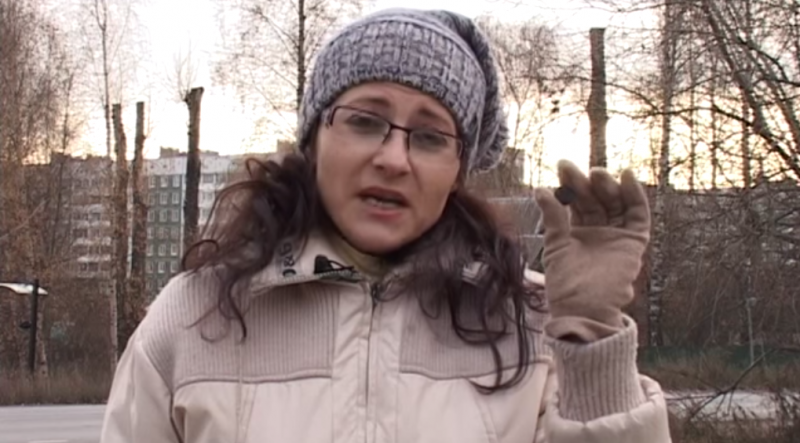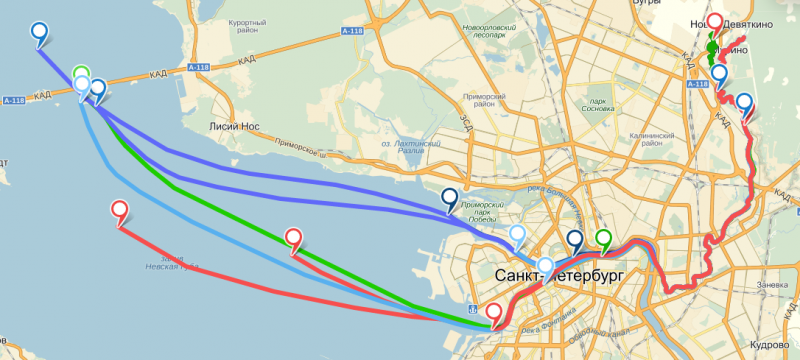
The mysterious fragrance of St. Petersburg's waterways. Images edited by Kevin Rothrock.
There’s a river of shit running through St. Petersburg. It starts in a little town called Novoye Devyatkino and flows into the Neva, where it empties into Neva Bay and then the Gulf of Finland. Locals for some time have sniffed with suspicion at the waterways from Novoye Devyatkino, but a group of ecologists now says it has proof that human feces are sailing unfiltered through St. Petersburg.
Two weeks ago, a group of St. Petersburg ecologists conducted a test in Novoye Devyatkino, a suburb about 12 miles outside the city, of the local sewer system. In a study they titled “Feces Travel,” the activists dropped ten miniaturized, waterproofed GPS-tracking units down the toilet of a single apartment home and began mapping the devices’ signals. On their website, the ecologists claim the trackers spilled out directly into the open-air waterways outside the building, without encountering even the most rudimentary sewage filtration. From Novoye Devyatkino, five of the devices reached the open waters of Neva Bay, where the units’ batteries appear to have died.
Some on the Internet have questioned the ecologists’ results, doubting that GPS units would be able to broadcast a signal from underground. Many of these objections are based on the misunderstanding that the ecologists were tracking GPS units in sewer lines. According to those behind the experiment, however, the trackers—along with anything else one tends to flush down the toilet in Novoye Devyatkino—never made it underground to the sewers: they spilled into the streams directly outside, without slipping through so much as a net.
Some questions, however, do remain about the experiment. On October 29, the ecologists published a video explaining what they did, featuring a woman who identifies herself as Evgenia Dolgova. In the video, Dolgova displays a small gumball-sized item when explaining the use of GPS-trackers (see photo below). The video then flashes a few stock photographs of two different types of waterproof GPS-trackers: the TKSTAR LK109 and the Twin Mask MT-90.

Evgenia Dolgova shows off one of the GPS-trackers supposedly used in “Feces Travel.”
Both these devices have a battery life of about 160 hours, making it possible to receive signals for almost a week, but the units’ faces are almost four square inches, making it hard to believe that either of these two trackers was the object between Dolgova’s fingers in the YouTube video.
On November 17, after learning about the experiment in Novoye Devyatkino, some of the area’s residents started posting complaints on the local utility company’s webpage, uploading photographs of their utility bills and circling in red the 200-ruble (about $4) fee for sewage service. The ecologists’ website, which has been experiencing temporary outages that they attribute to hackers, now includes a link to these complaints.









45 comments
Even a cat knows how to bury poop and a dog tries to.
At least may be you can explain me how what is desribed on this article is wrong?